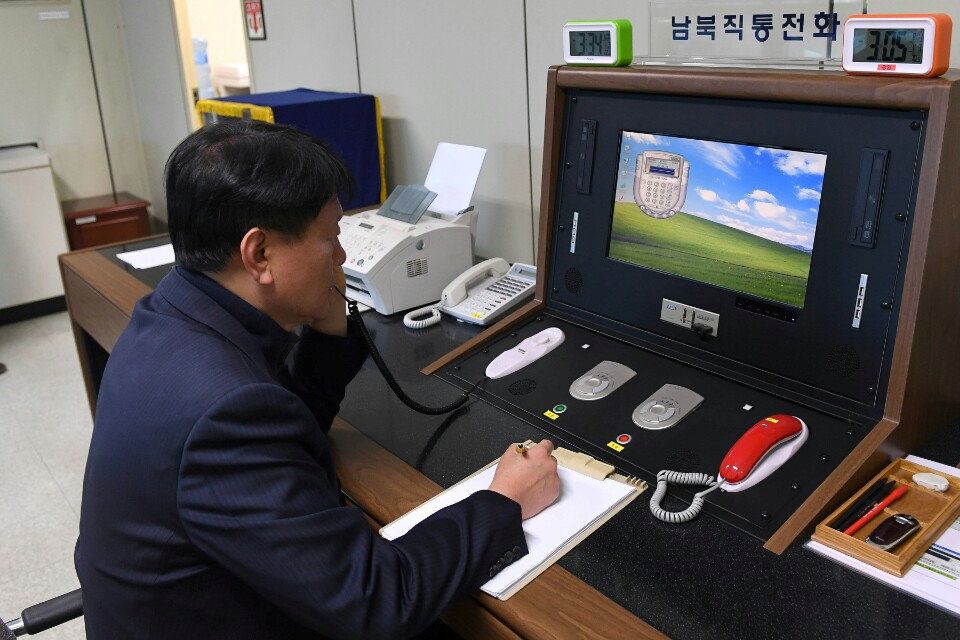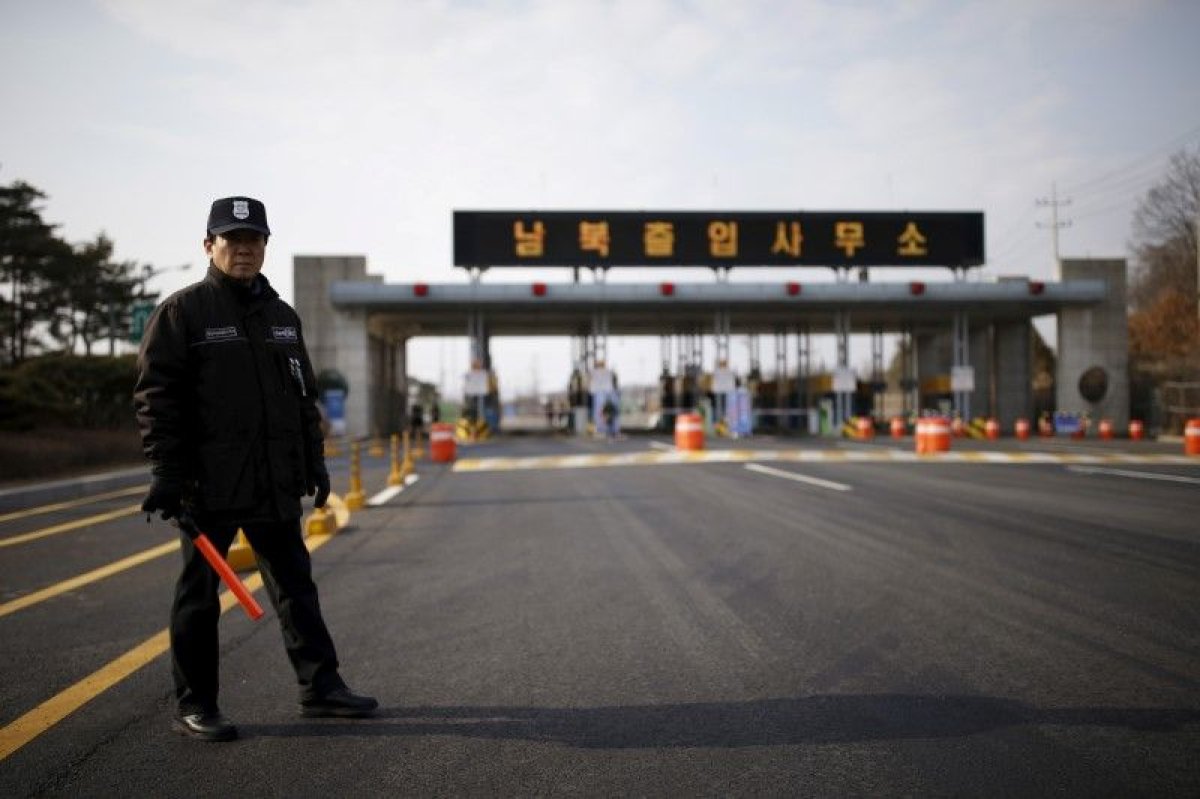
North Korean leader Kim Jong Un instructed officials to make a call to South Korea using a hotline that Pyongyang stopped using in February 2016.
The first direct contact between the countries in almost two years took place at around 3.30 p.m. local time (1.30 a.m. ET) on Wednesday. The conversation lasted 20 minutes, the South Korean unification ministry told the press.
"A North Korean official first contacted the South side via the channel," the ministry said, quoted in South Korean news agency Yonhap. Details of the conversation have yet to emerge, although the ministry mentioned both sides checked for technical problems.
North Korea announced earlier in the day it would reopen the hotline to initiate "sincere and honest" discussions with the South over collaborations at the upcoming Winter Olympic Games held in Pyeongchang, located 50 miles away from the inter-Korean border—an idea first advanced in Kim's New Year address.
"We will try to keep close communications with the South Korean side from sincere stand [sic] and honest attitude, true to the intention of our supreme leadership, and deal with the practical matters related to the dispatch of our delegation," Ri Son Gwon, chairman of North Korea's Committee for the Peaceful Reunification of the Fatherland said, quoted in the state-controlled North Korean news agency KCNA.
Ri did not mention explicitly whether Pyongyang accepted Seoul's invitation for talks to be held on January 9 in the border village of Panmunjom, where the phone line between the countries is located. North Korea closed the hotline in response to South Korea's decision to shut the jointly run Kaesong industrial complex in February 2016 in protest at Pyongyang's missile test launches.
South Korean President Moon Jae-in, however, welcomed the message as a sign of openness to dialogue. "I believe it signals a move toward an environment where communication will be possible at all times," the chief presidential press secretary Yoon Young-chan told the media at a press conference.
Moon, the son of North Korean refugees, was elected in May promising to ease tensions on the peninsula and return North Korea to the six-party talks. He believes sporting events such as the Winter Olympics represent a key opportunity for the countries to work together. "If the South and the North can join together at a time like this, it will be a great opportunity to send a message of reconciliation and peace to the world," he said at an event in New York in September, quoted in Yonhap.
But according to some experts, Kim's opening to talk with the South while renewing nuclear threats to the U.S. aims to sow division between the two allies. Kim's own words seem to reflect the idea that the U.S. is not invited to discuss issues pertaining to the Korean Peninsula. "The leader stressed that whether inter-Korean ties can be improved totally depends on North and South Korea," North Korea's Ri said in his speech on Wednesday.

A former North Korean diplomat who defected to South Korea in 2016, Thae Yong-ho, said Kim's plan is to drive a wedge within members of the international community to weaken international sanctions. "Kim seems to have an intention to shake the South, the U.S. and China, main key players in resolving North Korea's nuclear issue, so as to dilute their coordination over sanctions on the North," he told Yonhap.
U.S. Ambassador Nikki Haley called for unity against North Korea amid reports Pyongyang may be preparing for a new missile test. "We won't take any of the talks seriously if they don't do something to ban all nuclear weapons in North Korea," she told reporters on Tuesday.
Her boss, President Donald Trump, also expressed doubt in Kim's intentions with the proposed talks and bragged about the size of the U.S. nuclear button compared to North Korea's in a series of Twitter posts early Wednesday.
Uncommon Knowledge
Newsweek is committed to challenging conventional wisdom and finding connections in the search for common ground.
Newsweek is committed to challenging conventional wisdom and finding connections in the search for common ground.
About the writer
Sofia Lotto Persio reports mainly on Asia and gender issues for Newsweek. She previously covered international affairs with a specific ... Read more
To read how Newsweek uses AI as a newsroom tool, Click here.








